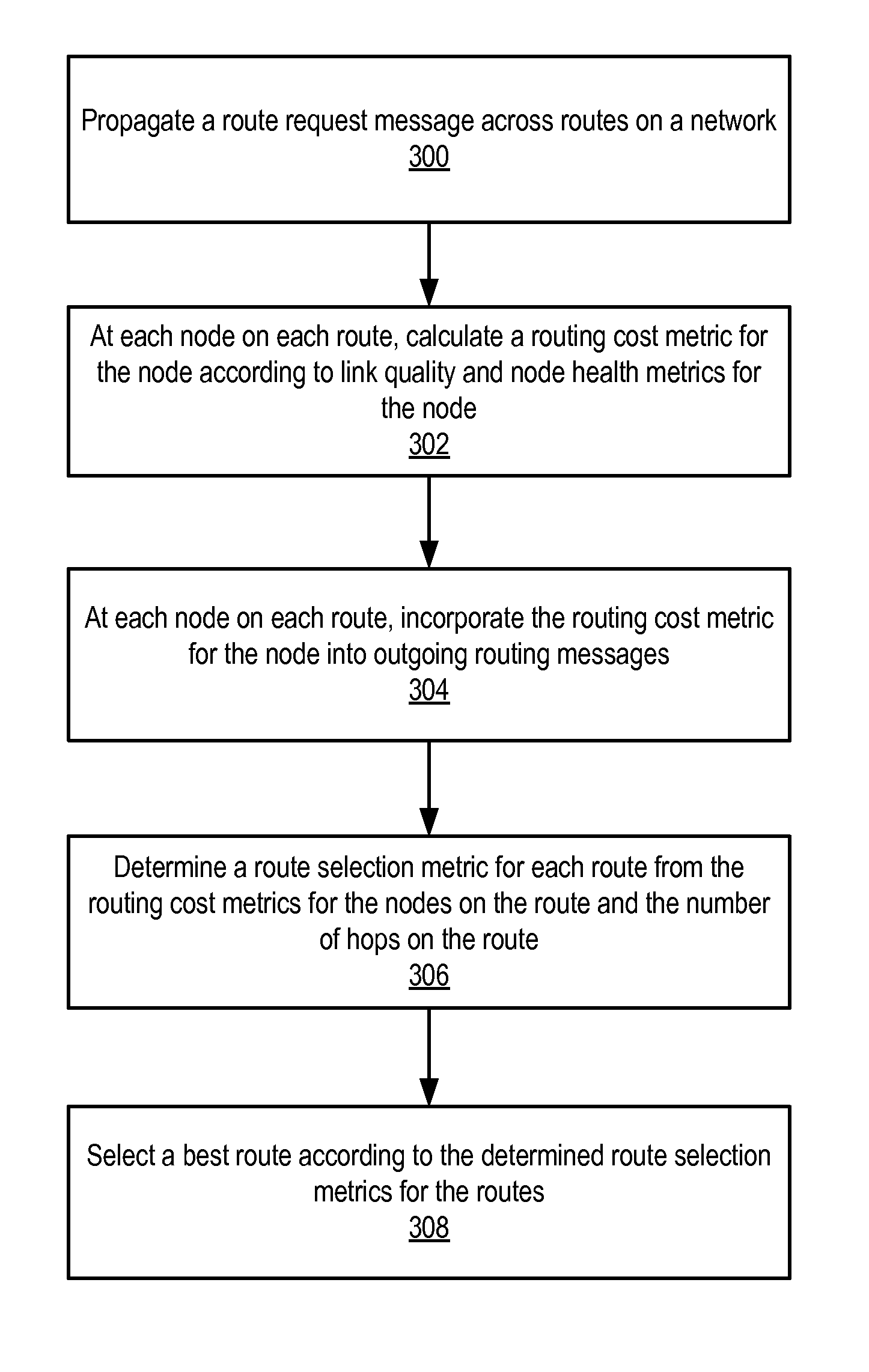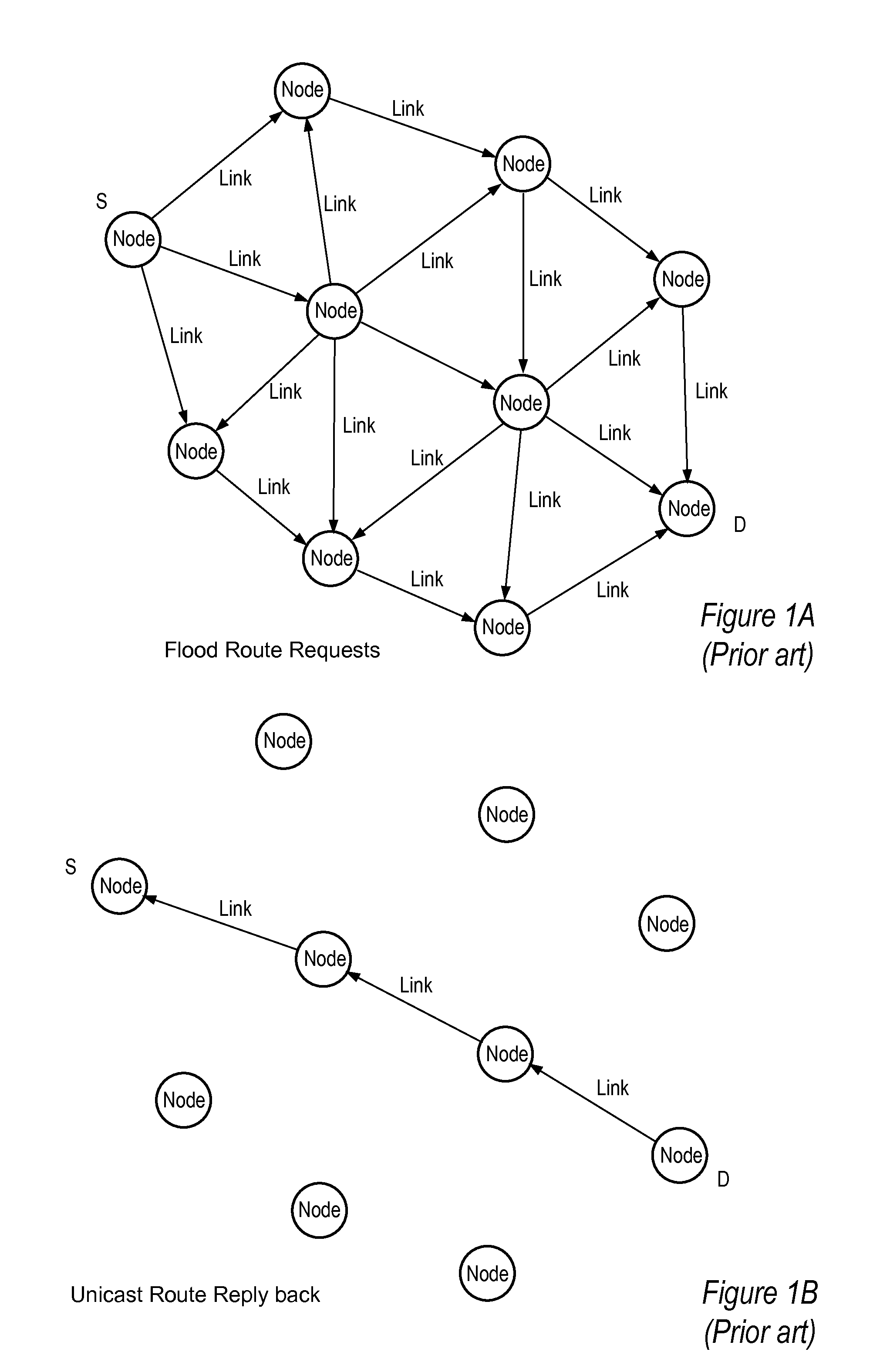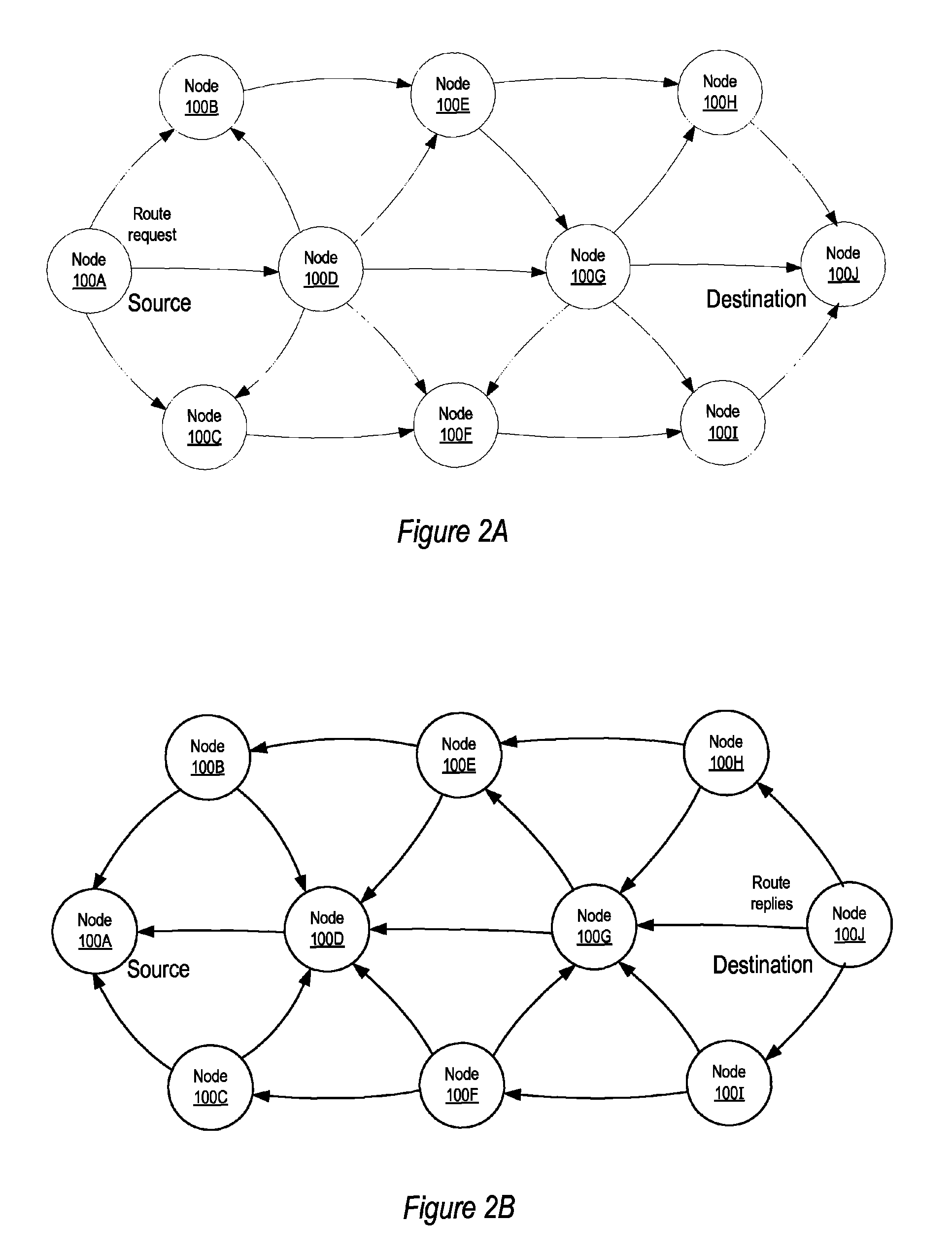Method and apparatus for mesh routing
a mesh routing and apparatus technology, applied in the field of computer systems, can solve the problems of not being able to reach all or part of the mesh, not being able to traverse stable links, and suffering from aodv routing solution, so as to prolong the overall life and health of the network, and more stable routes
- Summary
- Abstract
- Description
- Claims
- Application Information
AI Technical Summary
Benefits of technology
Problems solved by technology
Method used
Image
Examples
Embodiment Construction
[0015]Embodiments of a method and apparatus for optimizing mesh routing for stability and system lifetime maximization in networks, for example in Wireless Sensor Networks (WSNs) and in other wireless networks, are described. In embodiments, a routing module instantiated in nodes (devices) on the network may implement a link quality and node health aware routing protocol on the network that considers a combination of link quality and node health / residual lifetime metrics in the calculation of the desirability of nodes and links between nodes as parts of an overall route. Where simply augmenting existing routing algorithms, e.g. that used by AODV implementations, based on route stability may increase dependability of a given route, such an approach may also deplete critical nodes, diminishing the overall lifetime and utility of the sensor network. Embodiments of the routing module, by considering both link quality and node health, may improve reliability while protecting the network ...
PUM
 Login to View More
Login to View More Abstract
Description
Claims
Application Information
 Login to View More
Login to View More - R&D
- Intellectual Property
- Life Sciences
- Materials
- Tech Scout
- Unparalleled Data Quality
- Higher Quality Content
- 60% Fewer Hallucinations
Browse by: Latest US Patents, China's latest patents, Technical Efficacy Thesaurus, Application Domain, Technology Topic, Popular Technical Reports.
© 2025 PatSnap. All rights reserved.Legal|Privacy policy|Modern Slavery Act Transparency Statement|Sitemap|About US| Contact US: help@patsnap.com



